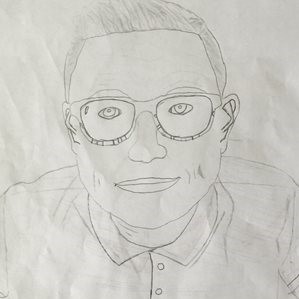Christian Anderson
Associate Professor

B.A. Individualized Interdepartmental Studies, University of Minnesota
M.A. Culture, Globalization and the City, Goldsmiths College, University of London
Ph.D. Geography, The Graduate Center, The City University of New York
Office: UW1-344
Phone: 425-352-5451
Email: cmander@uw.edu
Mailing Box: 358530, 18115 Campus Way NE, Bothell, WA 98011-8246
Website: christianmanderson.com
Teaching
I approach the classroom as a space where students can take stock of and begin to question sedimented forms of common sense, experiment with new intellectual practices and forms of collaborative knowledge production, and cultivate potentially transformative forms of praxis—typically based on a common theme, object of analysis, or collective goal. Generally speaking, I encourage students to experiment with new ways of producing knowledge, especially through different modes of inquiry that invite them to re-evaluate aspects of their thinking and learning that they may be taking for granted. I encourage students to conscientiously inventory and work to renovate their own existing frameworks of knowledge, habit, and interaction—to always consider the broader social and historical-structural entanglements at play even in the most mundane and intimate aspects of life, and to question the futures to which their own practices might lead. In the classroom, we use our lives and experiences to pose critical questions about processes of knowledge-formation and power. I provide substantial ongoing support so that students feel comfortable articulating, pushing up against the limits of, and renovating their own thoughts and practices along these lines.
Recent Courses Taught
BIS 180 Introduction to Human Geography
BIS 218 The Power of Maps
BIS 365 Institutions and Social Change
BIS 340 Approaches to Cultural Research
BIS 406 Urban Geography and Planning
BISSTS 307 Science, Technology, and Society
Research/Scholarship
My work is situated at the intersections of human geography, urban studies, cultural studies, science and technology studies, and critical social thought. I have deep experience as an urban ethnographer. I’m increasingly interested in practicing place-based collaborative methods (including oral histories, mapping and geo-visual methods, and other qualitative approaches) within different contexts and structures of community-embedded collective study and knowledge production. Across all of my work, the abiding aim is to understand how ordinary people’s everyday lives, routine practices, relations, and taken for granted or ‘common sense’ conceptions of the world interconnect with broader formations of culture, power, social reproduction, and political economy and to experiment with conscientious place-based processes and protocols through which different conceptions, practices, relations, formations, and futures might emerge. I’m currently working on projects engaging issues of so-called “smart” urbanism and planning, commons and commoning, localist production, building counter-narratives and capacities in the face of gentrification and displacement, and more. For a copy of my CV and more details about my work, please see the professional website linked under my contact information above.
Selected Publications
Book
- 2020. Urbanism without Guarantees: The Everyday Life of a Gentrifying West Side Neighborhood. University of Minnesota Press.
Research Activity Book
- 2023 Anderson, C., Freidberg, J., and Mumford, Z. Space and Place: A Research Activity Book. Wa Na Wari/Seattle Black Spatial Histories Institute
Articles
- 2023 Anderson C. and Jung, J.K. For a Cooperative “Smart” City Yet to Come: Place-Based Knowledge, Commons, and Prospects for Inclusive Municipal Processes From Seattle, Washington. Urban Planning. 8 6-16.
- Luthra, A., Tucker, J., and Anderson, C. Introduction: Outside the wage: Seeing politics and possibilities with critical comparisons. Antipode: A Journal of Radical Geography. 55 989-1003.
- Anderson, C. and Huron, A. The mixed potential of salvage commoning: Crisis and civic labor in Washington D.C. and New York City. Antipode: A Journal of Radical Geography. 55 1004-1023.
- 2016 Jung, J. K., and Anderson, C. Extending the conversation on socially engaged geographic visualization: representing spatial inequality in Buffalo, New York. Urban Geography, 38 903-926.
